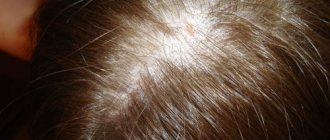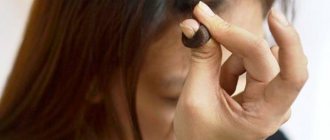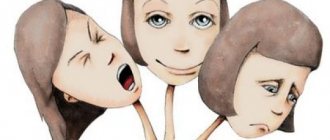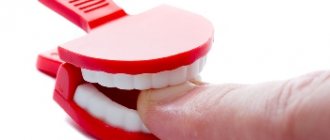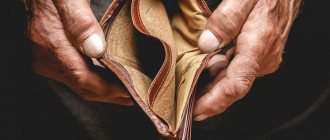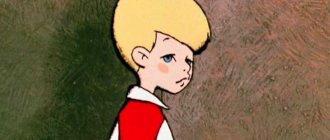Trichophagia is a complex of mental disorders, the distinctive feature of which is an unhealthy attraction to one’s own hair - the desire to constantly eat it. According to statistics, however, there are not many patients with this diagnosis. True, many researchers note that people tend to hide such attractions, or not pay any attention to them.
Some people gnaw at the ends of their hair, while others tear them out by the roots and eat the follicles. There are also people who eat the entire hair itself. Often, a dangerous hobby leads to the development of pathologies of the gastrointestinal tract, which may even require emergency surgical interventions. As you know, due to its structure, hair is not digested in the human body - because of this feature, hairballs accumulate in the stomach, blocking the path to the intestines. That is why trichophagia and trichophrenia, which is associated with it, are quite serious diseases, the treatment of which cannot be done without the help of a psychiatrist, and sometimes even a surgeon.
Trichophagia - features of symptoms
In most cases, trichophagia appears against the background of a pathological desire to pull out one's hair (this is trichotillomania - a separate disorder). This disease is rare and occurs mainly in women. In most cases, patients eat their own hair, but there are also cases of eating someone else's hair. Moreover, in especially rare cases, patients even eat pet hair.
Most often, a person eats hair purely automatically. However, there are also completely exceptional cases when the disease goes too far. For example, the story of a 44-year-old American woman who ate the hair of her own cat for a long time received quite a lot of publicity. Moreover, the woman groomed her pet on her own. The patient seriously believed that wool was rich in vitamins and minerals and was also a delicacy. Fortunately, the young lady’s strange gastronomic preferences came to the attention of psychiatrists.
A strong desire to eat hair does not arise quickly; at first the patient simply pulls it out, then begins to gnaw it, then eats it. As mentioned above, many patients use only follicles, but sometimes whole hair is used.
Constantly eating hair leads to the formation of hairballs in the stomach, and subsequently intestinal obstruction. Surgeons often find hair in human intestines. Even if they get there by accident, they pose a huge problem for digestion. There is no need to talk about purposefully eating hair. Often neglected trichophagia leads to death.
Hair tends to tangle and tangle. The most dangerous situations are when a hairball is in a person’s stomach, and a long “tail” stretches into the intestines. This phenomenon even has its own name - “Rapunzel syndrome”. Experienced surgeons talk about situations where the patient’s stomach resembled a solid ball of hair - this is about five kilograms.
Trichophagia is one of the mental disorders and obsessive drives in which an irresistible desire first appears, and then a habit is formed. Trichophagia is often observed in schizophrenia or mental retardation, but often healthy-looking people also suffer from it.
Tight hairstyles
Those who prefer to style their hair in tight ponytails, braids, knots, etc., risk worsening the condition of their strands and causing them to fall out. Hairstyles that are too tight and tight can damage the hair follicles, which over time leads to hair breakage and hinders hair growth. It is advisable not to overuse tight styling and not to pull your hair too tightly. It is good for them to “rest” from time to time. Tightening your hair at night is especially harmful.
Sources:
https://primety.net/?Primety_o_sebe https://sueveriya.ru/archives/23353 https://erekto.ru/otnosheniya/privychka-krutit-volosy.html
Clinical manifestations of trichophagia:
Let's try to list the manifestations that may indicate the development of trichophagia in a person:
- Annoying thoughts, strong desire to eat hair;
- Apparently tension and anxiety increase before eating hair;
- Relief after eating hair
- Constant tearing out of hair on the head, armpits, and groin;
- No vomiting or nausea after eating hair.
In the first stages of the development of the disease, a person may chew hair for a long time without swallowing, and the phenomenon may look like a harmless habit. As the pathology develops, the patient eats hair more and more confidently and shamelessly. Moreover, over time, a certain semblance of dependence on one’s own (or other people’s) hair is formed. When the experience of eating hair is significant, the listed symptoms are accompanied by signs of closure of the intestinal lumen - paroxysmal pain, dizziness, vomiting. Unfortunately, most patients with trichophagia seek medical help only in extremely severe conditions.
Why does hair get tangled?
Situations arise when the hair often gets tangled and knots appear on it. The ancient Slavs considered this to be the work of evil spirits. The most popular interpretation of the sign about tangled hair is the tricks of a brownie who is dissatisfied with the behavior of the tenant. The brownie plays pranks if the house is not cleaned or if they use foul language.
It’s easy to appease a naughty brownie. To do this, you need to cook a delicious dish in milk and leave it in a saucer overnight.
According to popular belief, tangles in hair are the first sign of damage. The detected knot cannot be cut with scissors. Otherwise, your health may suffer.
If tangles are constantly forming, then a person should put his thoughts in order. There are several other interpretations of the sign:
- strands tangled after sleep - signifies the appearance of a admirer or a meeting with your other half;
- knots in the hair appeared in one place - a sign of a long and exciting journey;
- finding tangles in another person’s head means clarifying the relationship with him.
If a tangle in your hair has been unknowingly cut or pulled out, it is recommended to get rid of it using fire. Throwing hair outside is prohibited because it can lead to tragedy.
.
Knots in the hair at the back of the head are a sign of damage. If, in addition to this, a person observes other symptoms (loss of energy, sudden changes in mood), then this means that a strong curse has been imposed on him. Only professional magicians can remove evil spells. If there are no external signs, then the situation indicates a weak love spell. In this case, you can get rid of the magical influence yourself. It is enough to wash your face with cold water and read the “Our Father” prayer.
Etiology of trichophagia:
Most psychiatrists agree that the reasons for the development of trichophagia may be, in particular:
- Deficiency of maternal love;
- Fear of being alone;
- Death of loved ones;
- Alcoholism and drug addiction;
- Depression;
- Inferiority complex.
As you have already noticed, there are all the prerequisites for the onset of the disease in childhood, including early childhood. And indeed, the tendency to the pathology in question really manifests itself quite early. Indirectly, children who twirl their hair around their fingers can be considered a “risk group” during experiences or moments of concentration.
Usually, children understand well that eating hair is bad, they try to hide their desire to do this from adults, and retire to indulge in trichophagia. Children deviate from relevant questions and hide the habit from parents and doctors.
Regarding character, such children have excellent communication skills, developed leadership qualities and good performance in school. Often, these children grow up in authoritarian families, where pedantry and adherence to clear rules are encouraged. Eating hair can be triggered by a feeling of discomfort and guilt when deviating from the algorithm of behavior set by strict parents.
About why we can't stop pulling our hair in our hands
One day, one of my good friends and former work colleagues, a woman whom I respect immensely, told us in the office that she does not like people who endlessly touch their hair. Well, you know, there are people who play with their hair all the time: they run their fingers through it, fluff it up, throw it in the air - and all this while talking with another person, or during lunch. She was generally convinced that real women always tidy up their hair before starting to eat - after all, how can you fully enjoy such an important event as eating when your hair endlessly gets into your face...
Everyone around began to make sounds of agreement, and I, too, most likely would have nodded, if during her inspired story I had not realized that the person who endlessly pulls at his hair is me.
For me, my hair is a protection against stress, a spinner, it’s my scarf. I constantly run my fingers through my hair, I stroke it with tenderness and never tie it before eating, and in general I never tie it. For me, the danger of getting my hair dirty with food crumbs or getting caught in some mechanism seems less scary than the prospect of appearing with a ponytail in front of others. I raised and cared for them with dedication, I gave them much more energy than any other pet or plant. And it seems to me that the reason lies much deeper than banal arrogance. At least that's what I hope. So, what makes a person pull their hair? According to one version, as old as time, touching hair is a manifestation of flirting. “In “playing” with hair, namely: straightening it, stroking it, twirling it on your fingers, throwing it back (the most powerful of gestures), flirting is expressed,” one unfamiliar user from the Quora network explains to us with the air of an experienced connoisseur. “If a woman’s behavior clearly shows several flirting gestures, then we can say that she is most likely expressing her sexual interest in her interlocutor.” As a person who, until the age of 21, considered the most seductive gesture to be a stern look from under thick bangs, I believe that there is some truth in this. Hair makes a woman beautiful. A friend of mine told me the other day that her father, despite losing his hair when he was 23, still straightens his invisible hair every time he wants to impress a woman. It seems funny to her, but significant to me.
Although elements of flirtation in our behavior may have been preserved in the process of evolution, as a reminder of prehistoric times, habits that are not controlled by a person’s consciousness can tell a lot about a person’s attitude towards himself, and - no less - about his attitude towards to the people around. I don't wear long hair to wave it around in front of men, I like long hair because it makes my round, potato-shaped face look smaller. And although they look very attractive, I have no desire to flirt with the employees or with the man at the bus stop who smells of beer and who is trying to talk to me. What other reason could there be for this gesture?
“We often pull at our hair unconsciously. This can happen when we're bored, brooding, nervous and stressed—hence the expression "pulling your hair out," says trichologist Anabel Kingsley of Philip Kingsley. “Picking your hair can be used as a way to alleviate the experience.”
Touching our hair can help us feel relief from nervous tension, but there is a more serious problem: stress can trigger what are called body-oriented motor iterations. This uncontrolled reaction consists in the fact that a person begins to pull his hair (trichotilomania) and chew it in his mouth (trichophagia), pinch himself, pick his nose, bite his lips and cheeks. In the extreme stages of trichotillomania, this nervous disorder can lead to a deterioration in the person's general health, which may result in complete hair loss. Women suffer from this disorder three times more often than men.
There is also such a social phenomenon as worrying about your appearance in front of other people. This stressful state occurs due to the fear of receiving a negative assessment regarding one’s appearance. This is not a well-researched issue, but it doesn't take a rocket scientist to figure out that most people touch their hair more because they feel awkward than because they want to attract a potential sexual partner. Just like how worried parents endlessly call their nanny to find out if everything is okay, if the child is behaving well and if she is getting on her nerves.
Further evidence that frequent touching of one's hair is a sign of anxiety is that such a person tends to appear insecure. “When a person touches their head, hair or neck area, this is an expression of the fact that they feel extremely uncomfortable,” says behavioral psychologist Vanessa van Edwards. “Even if this person is not worried, such a gesture is still an expression of low self-esteem.” Maybe you should wear your hair in a good old French knot when you go for a job interview...
So we touch our hair when we flirt with men, we touch our hair when we're nervous, aren't we just touching it to feel it? It brings us the same tactile pleasure as touching corduroy, silk, or cashmere sweaters. Among the community of women with naturally curly hair, there is also a humorous concept of “compulsive touching syndrome.” It is expressed in a persistent desire to touch, stroke, ruffle, and play with his African-American curls. And since science claims that when we stroke animals, oxytocin (“the hormone of happiness”) is produced in the body, and when other people touch us, this makes us calm down—is it possible to assume that we touch ourselves, like to your beloved pet, thereby causing a surge of positive emotions towards yourself and the production of missing hormones?
But regardless of whether our hair obsession is an act of self-destruction, an expression of shyness or, on the contrary, self-love, there is another concern: are we harming our hair with such actions? “Lightly stroking and fluffing your hair won’t do anything bad,” says Kingsley. - But if you touch your hair with dirty or greasy hands, you can get it dirty, and the dirt will then transfer to your scalp. Twisting your hair around your fingers can cause tangling. And if you do this carelessly, the hair can break and even be completely pulled out. Another prohibition concerns split ends of hair - you cannot tug at them (my favorite pastime).”
“Try wearing your hair up in an updo or in a loose braid,” she adds. “You may also find it helpful to use a rosary or a stress ball to take your mind off your worries.”
Maybe I too can make an effort and give up this habit. Maybe I should get that special ball or get a pet. Or maybe the problem is that I need to improve my self-esteem...
Comments
1
Glossary of terms
In this section we have collected all the terms that you might encounter in this article. Gradually, we will collect from these explanations a real dictionary of a narcologist-psychiatrist. If some concepts remain unclear to you, leave your comments under the articles on our site. We will definitely help you figure it out.
Rapunzel syndrome
– a situation when a hairball is in a person’s stomach, and a long “tail” stretches into the intestines. A direct consequence of the desire to eat hair.
Trichotillomania
– a person’s pathological need to continually pull out hair on the head or other parts of one’s body. Trichotillomania occurs approximately twice as often in women as in men. Considered a mental disorder, often associated with stress.
Trichophrenia
– a mental disorder characterized by a particularly reverent attitude towards one’s own hair. Most psychiatrists classify trichophrenia as a type of schizophrenia.
Causes
The most common reason is habit. A person twirls his hair at a moment of thoughtfulness, awareness of some problem, or prolonged reflection. This simple action helps you concentrate on your thoughts and stop reacting to external stimuli.
Other reasons are presented below.
- The desire to calm down. The sensation of twisting your hair is reminiscent of a soothing pat on the head or a relaxing massage. That's why children of preschool and primary school age can use this relaxation method. Sometimes it’s easier to cope with separation from your mother.
- Fall asleep faster. The baby plays with his hair when he falls asleep. Gradually he falls asleep without the help of his parents. Usually this bad habit is eradicated with age.
- The desire to escape from your problems. As a child gets older, the number of stressful situations increases. The habit of touching hair develops into a compulsive action. A vicious circle is formed: he gets a little nervous - he twirls his hair - he realizes that this is bad - he gets nervous.
- Another reason is a feeling of defenselessness. Being very frightened, the baby decides to pull his hair. He thinks that this will make the situation safer and help get rid of obsessive fear.
- It happens that he begins to pull not only his own hair, but also other people’s. This is how a child often hurts his mother without even realizing it. Sometimes he uses his fingernails, literally tearing out entire clumps of hair. And there is only one explanation for this - he is scared and wants his parent to protect him from everyone.
